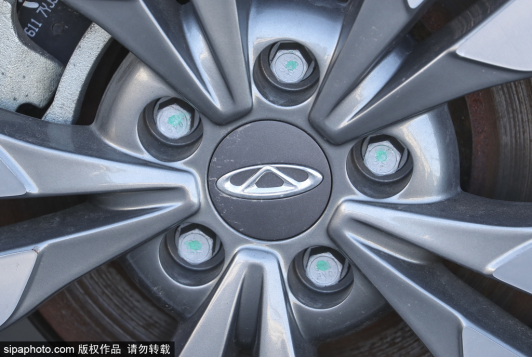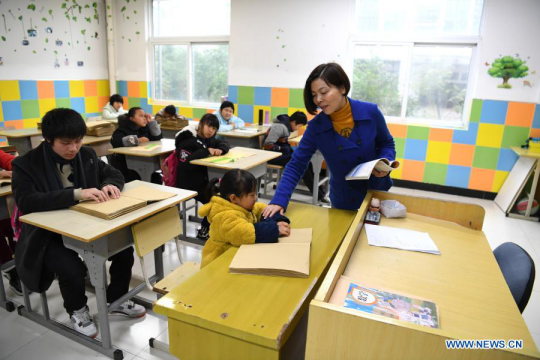In September 2020, the State Council, China’s cabinet, issued the Overall Plan for the Beijing, Hunan, and Anhui Pilot Free Trade Zones and the Plan for the Expansion of the Zhejiang Pilot Free Trade Zone. This is the sixth batch of measures tested by the pilot FTZs since 2013, bringing the total number of free trade zones nationwide to 21.
President Xi Jinping, while presiding over the 15th meeting of the Central Commission for Deepening Overall Reform on September 1, called for efforts to promote deeper reform and pursue higher-standard opening-up to provide a strong impetus for shaping a new development pattern.
He stressed the necessity to link the establishment of a new development pattern with the implementation of the national strategy for coordinated regional development and the construction of pilot FTZs. He also said that regions where conditions permit should take the lead in exploring a new development pattern and creating new heights of reform and opening-up.
Dovetailing with the 14th Five-Year Plan
The construction of the sixth batch of pilot FTZs emphasizes the integrated development of metropolitan areas through the integration of industrialization, urbanization, and agriculture. This is also in line with the 14th Five-Year Plan.
The new batch of FTZs will focus on developing urban agglomerations in the Beijing-Tianjin-Hebei region, the Yangtze River Delta, and cities along the middle reaches of the Yangtze River. It can be seen that the Beijing Pilot FTZ will form a pilot free trade belt with Tianjin and Hebei. The Anhui FTZ will be naturally running on the fast track of the Yangtze River Delta economic integration after it is approved. The FTZ in Hunan has a special role as an international investment and trade corridor linking the Guangdong-Hong Kong-Macao Greater Bay Area, while deepening economic and trade cooperation with Africa.
The Beijing FTZ will focus on trade in services and the digital economy. Globalization is presently undergoing profound changes. If China is to continue to strengthen its function as a central node in the value chain of the Asia-Pacific region, it is particularly important that it builds a knowledge-intensive digital-oriented global value chain. There are a large number of headquarter enterprises in Beijing, and the differentiated development road charted for it shows that the central government has high hopes for Beijing and the unique role which the Beijing FTZ will play.
In addition to this, the Beijing FTZ is building itself into a sci & tech innovation center with global influence and in coordination with local reforms. All the reform tasks that meet the conditions can be fully implemented in the Zhongguancun National Independent Innovation Demonstration Zone and gradually promoted across Beijing. From a certain perspective, the Beijing FTZ can be compared with the Shanghai Pilot FTZ, founded in 2013, and the Hainan Free Trade Port, proposed in June this year, because of its unique orientation.
After the establishment of the Beijing FTZ, the coordinated development of the Beijing-Tianjin-Hebei region will seem particularly important. We should not only give full play to the characteristics of Beijing as the capital city, cultural center, and economic hub of China, but also to the role of Hebei as a manufacturing hub in the north and of Hebei Baoding Baigou Economic and Trade Zone. Baigou of Hebei Province is an important commodity distribution center. It will be an innovation if the Beijing, Tianjin, and Hebei FTZs can be built into a model that incorporates manufacturing and commercial industries, with shipping and logistics in Tianjin Binhai New Area, manufacturing and commercial areas in Hebei Province, and service trade and a booming cultural industry in Beijing. The three can complement each other and develop together.
Wade into the Deep Water Zone
Hunan has long yearned to set up a FTZ of its own. Among central China provinces, Hunan is an important link between the middle reaches of the Yangtze River Economic Belt and Guangdong-Hong Kong-Macao Greater Bay Area. Objectively speaking, the city clusters in the middle reaches of the Yangtze River have achieved a high level of development, but there is still much room for further development. Hunan is the destination of an extensive transfer of industry and labor from Guangdong. Some processing trade companies have moved from the Guangdong-Hong Kong-Macao Greater Bay Area to Shaoguan in northern Guangdong, and then from Shaoguan to southern Hunan, which can be said to be the extension of the economic belt of the Greater Bay Area.
In addition, Hunan is also an important region in the middle reaches of the Yangtze River Economic Belt. Changsha, the provincial capital, is one of the three central cities in the city cluster of the middle reaches of the Yangtze River, and plays a leading role in central China’s economic development.
The Anhui FTZ has undertaken industrial transferring and agglomeration to the north, all of which give full play to the advantages along the Yangtze River from Wuhu to Ma’anshan and facilitates Anhui in integrating into the Yangtze River Delta. Having the support of the University of Science and Technology of China, Anhui can tap into its strength as a science and technology center providing intellectual support for economic integration in the Yangtze River region. It is also conducive to the differential development of Shanghai, Jiangsu, Zhejiang, and Anhui to give full play to their comparative advantages.
From a geographical perspective, all the provinces to the east of Heihe-Tengchong Line (regions southeast of the line account for 40 percent of Chinese land territory but more than 90 percent of Chinese population), except Jiangxi in the middle, Guizhou in the west, Shanxi in the north and Jilin in the northeast, are covered by FTZs. In the near future, free trade zones will be set up in every province east of the Heihe-Tengchong Line. This will be an important step for China in building a new pattern of all-round opening-up.
Over the past few years, FTZs have introduced policies to expedite customs clearance for imported goods into them and improve smart monitoring of flow of goods between them and other parts of the country. As long as there are no explicit prohibitions in relevant laws and regulations, citizens or legal persons can act on their own in FTZs. In addition, China is implementing a “pre-establishment national treatment” plus “negative list” management system for foreign investment, and moving ahead in liberalization of trade and the facilitation of investment, while continuing to streamline administration and delegate powers, all of which are tangible results of reform and opening-up.
It is expected that the opening-up and reform of the free trade area will lead to greater depths. Further reform is needed to promote development of the service trade, and China’s financial sector should accelerate in further opening up.
Within the context of China’s endeavors to build a dual circulation development pattern, the expansion of FTZs has broad implications. In the face of unprecedented changes and a once-in-a-century pandemic, China is advancing trade globalization by continuously building a new pattern to deepen all-round reform and expand opening-up on all fronts.


